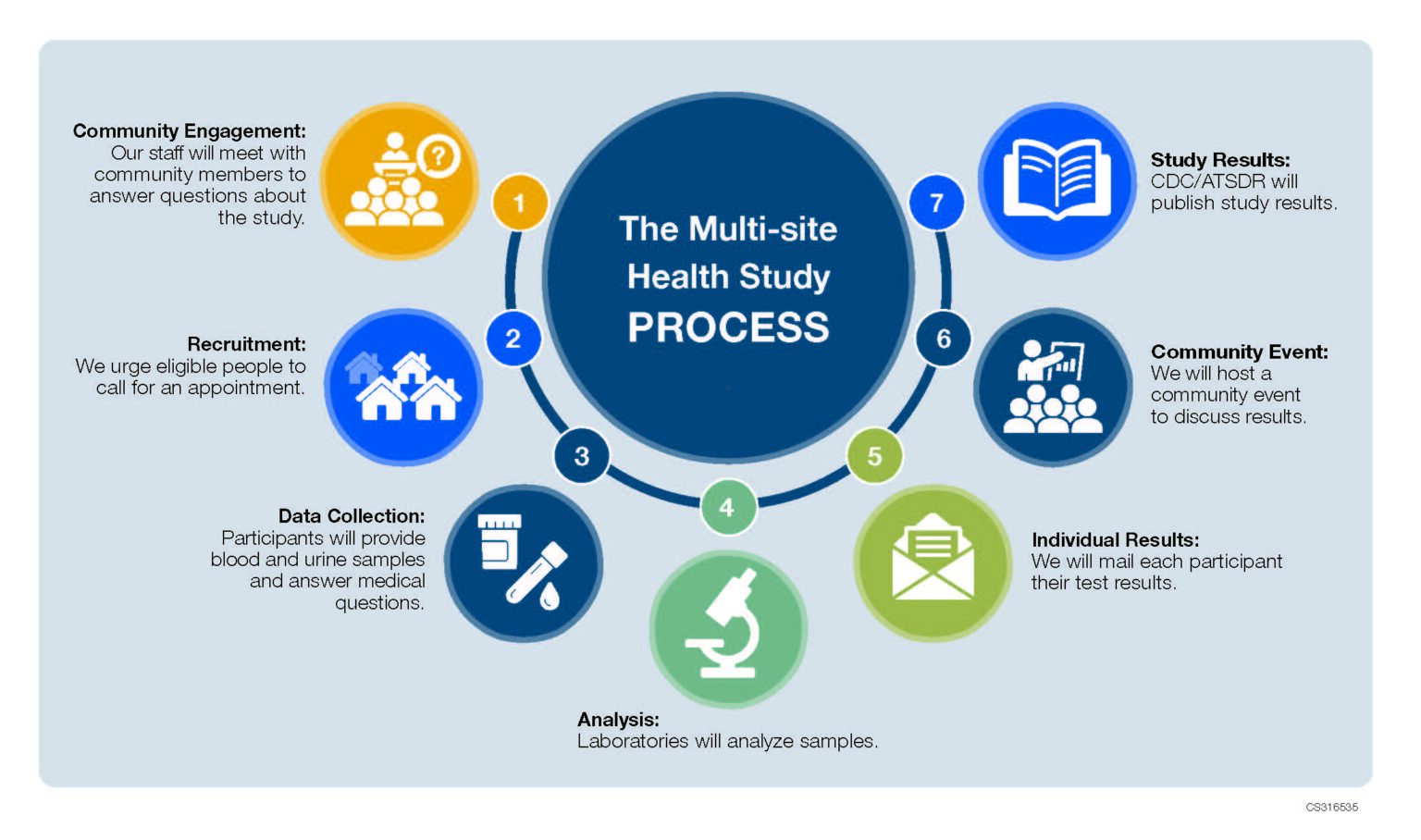Paulsboro PFAS Health Study
Drinking Water and Per- and Polyfluoroalkyl Substances
About the Study
Why Paulsboro and what is the goal?
Paulsboro was selected for the study because residents were exposed to drinking water that contained PFAS.
The study will recruit community members to evaluate their PFAS blood levels and various health measures to learn how PFAS may affect health
We want to understand more about the health effects of PFAS because there is little known and some studies have shown that PFAS may be harmful.
What are PFAS?
PFAS are man-made chemicals that have been used in industry and manufacturing of consumer products since the 1950s, including some cosmetics; water, grease and oil-resistant products; and firefighting foam. The most commonly studied PFAS are perfluorooctanoic acid (PFOA) and perfluorooctane sulfonate (PFOS). Their production and use has been phased out in the United States. Other PFAS chemicals include PFNA, which was found in the drinking water in Paulsboro in 2009 and 2013. The contaminated well was shut down in April 2014 and reopened with filtration in June of 2016.
What are the possible health effects?
Health impacts of PFNA are less known, however some studies have shown that PFAS may:
- Adversely affect growth, learning, and behavior of infants and children
- Lower a woman’s chance of getting pregnant
- Interfere with the body’s natural hormones
- Increase cholesterol levels
- Affect the immune system
- Increase the risks for some cancers
We have much to learn about the potential health effects of exposure to PFAS, specifically PFNA

For more information call or email:
856-599-1205
paulsboro-health-study@eohsi.rutgers.edu

Copyright © 2021, Rutgers, The State University of New Jersey

